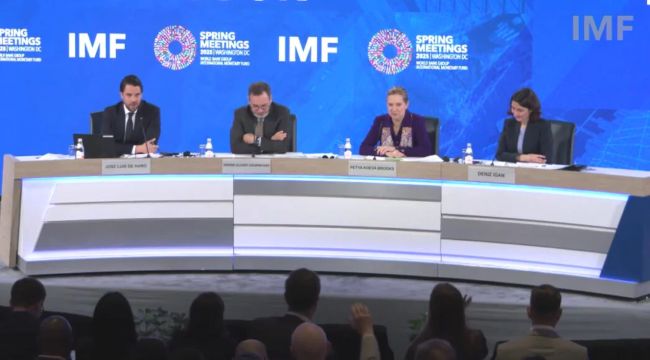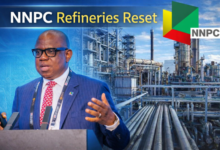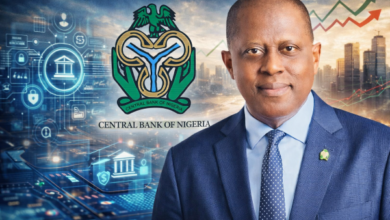Be Prudent: IMF Tells Nigeria to Anchor Gains of Reforms with Fiscal Discipline

As Nigeria expectedly begins to reap the early benefits of its tough economic reforms, the International Monetary Fund (IMF) has urged for prudent Fiscal Discipline while issuing a clear warning: this is not the time to spend recklessly.
At a Fiscal Monitor press briefing held during the ongoing 2025 IMF/World Bank Spring Meetings in Washington D.C., the IMF called on Nigerian authorities to exercise prudence, build fiscal buffers, and lock in reform gains with disciplined, transparent spending.
“Nigeria has taken bold steps, but now it must stay the course by ensuring fiscal stability through stronger institutions and smarter spending,” said Vitor Gaspar, Director of the IMF’s Fiscal Affairs Department.
A Moment of Opportunity — and Risk
Nigeria’s fiscal reforms, including petrol subsidy removal, exchange rate unification, and tightened monetary policy, have created new fiscal space, helping the country retain more revenue than in previous years.
However, both Gaspar and Davide Furceri, Nigeria’s division chief at the IMF, stressed that these gains remain fragile unless backed by clear strategies for debt reduction, revenue mobilization, and investment efficiency.
IMF’s Three-Pronged Fiscal Prescription
Gaspar outlined three key priorities for Nigeria and other reforming economies navigating global economic headwinds:
- Fiscal Policy Must Be Integrated
Fiscal decisions must align with monetary and structural policies — not work in silos. Coordination is key for stability and effectiveness. - Debt Reduction and Buffer Building
Governments should aim to reduce public debt and rebuild fiscal buffers to weather future shocks. This must be guided by a credible medium-term fiscal framework. - Focus on Growth and Stability
Fiscal strategies should not only address deficits but also enhance long-term growth potential, easing difficult policy trade-offs.
“Fiscal policy must become a source of confidence and economic competitiveness, not volatility,” Gaspar emphasized.
Nigeria: Reform Momentum Must Be Matched with Discipline
According to Furceri, Nigeria has made commendable progress in implementing difficult but necessary reforms. However, he cautioned that the next phase is critical.
“Nigeria has done the hard part. Now the challenge is to spend wisely and ensure every naira delivers value,” he said.
Furceri urged Nigeria to:
- Scale up revenue mobilisation, especially through digital systems and tax base expansion.
- Strengthen social protection to cushion reform impacts on vulnerable populations.
- Increase investment in infrastructure and education to fuel inclusive growth.
- Deepen fiscal governance through stronger institutions, planning, and accountability.
BRANDECONOMY Insight: Can Nigeria Maintain the Discipline?
Nigeria’s ability to convert fiscal space into sustainable development depends on political will, institutional discipline, and public trust. With 2025 already posing external challenges — from global interest rate volatility to rising geopolitical tensions — the country cannot afford policy slippage.
“We’ve seen this cycle before — painful reforms followed by populist backtracking,” said one Lagos-based economist. “But with the right frameworks and transparency, Nigeria can rewrite that script.”
🏛️ What’s Next?
- The Federal Government is expected to unveil its Medium-Term Expenditure Framework (MTEF) update later this quarter.
- Policymakers are under pressure to cut waste, improve public financial management systems, and expand targeted social spending.
For Nigeria, the message from Washington is clear: fiscal prudence is not just a virtue — it’s an economic imperative.












